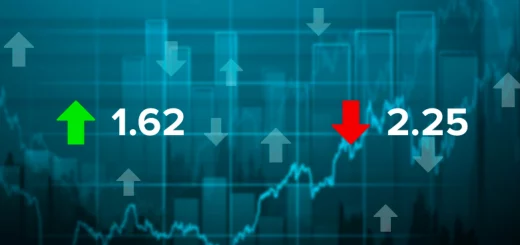How Units Work in Betting: Everything You Need to Know
If you’re new to betting, you may be wondering how units work. In this article, we’ll break everything down for you so that you have a clear understanding of what units are and how they can help you make more money from your bets. We’ll also explore the different types of units that are common in betting, and give you some tips on how to use them effectively. So, whether you’re just starting out or are looking for ways to improve your betting strategy, read on for all the information you need!

What are units in sports betting?
A unit is a measure of the size of your bet. It’s helpful to think of units in terms of percentages, rather than dollar amounts. So, if you’re betting £100 on a game and you have a bankroll of £1000, that’s one unit. If you’re betting £200 on a game, that’s two units. And so on.
The size of your bet should always be relative to the size of your bankroll. This is why units are a useful tool, because they help you to keep your bets consistent no matter how much money you have to work with.
What are the main types of betting units?
There are decimal and fractional units. Decimal units are most common in Europe, while fractional units are more common in the United States.
Decimal units are pretty straightforward — they’re simply the amount of money that you stand to win or lose on a bet, expressed as a decimal number. So, if you bet £100 on a game with odds of +200, you would win £200 if your bet was successful. Your total return would be £300, which is your original stake plus your winnings.
Fractional units are a little bit more complicated. In the US, odds are usually expressed as fractions, rather than decimals. So, the same bet that we just looked at — £100 on a game with odds of +200 — would be expressed as ‘odds of 100 to 200,’ or ‘100/200.’ This means that for every £100 that you bet, you stand to win £200.
The key thing to remember here is that the first number in the fraction (the 100) is your stake, and the second number (the 200) is your winnings. So, in this example, a successful bet would return £300 — your original stake of £100, plus your winnings of £200.
How can you use units to improve your betting?
There are a few different ways that you can use units to improve your betting.
First, you can make sure that you’re always betting a consistent amount relative to the size of your bankroll. This will help you to minimize your risk and maximize your chances of making a profit over the long term.
Second, you’re able to make more informed decisions about how much to bet on each game. If you know that a particular bet is worth two units, you can weigh up the risks and potential rewards of that bet before you make it. This can help you to avoid making careless or impulsive bets that are likely to lose you money.
Finally, units can be used to keep track of your results over time. If you know how much money you’re winning or losing on average per bet, you can adjust your strategy accordingly. This is how professional bettors make a living — by constantly tweaking and refining their approach based on their results.
Unit betting is a great way to make money and have some fun while you’re at it. We hope that this post has given you the confidence you need to get started. Remember, always bet within your means and be sure to enjoy it.
How did unit betting work out for you? Leave us a comment below and let us know!


